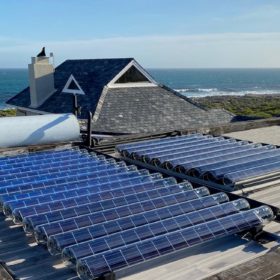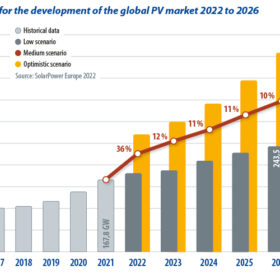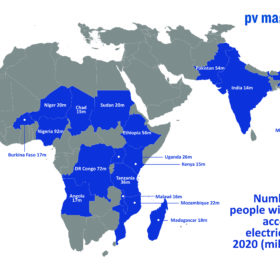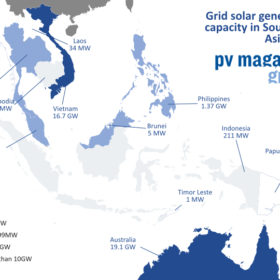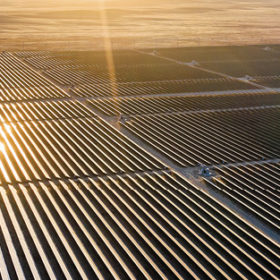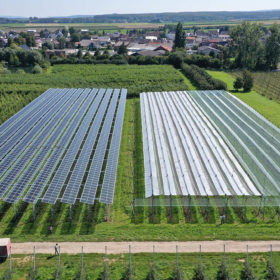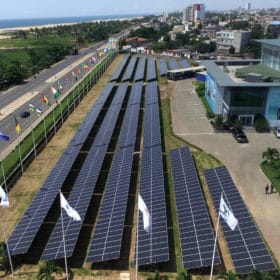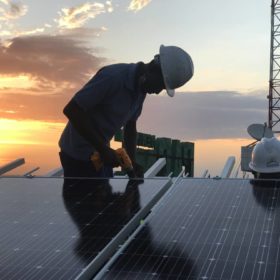UK must act now to embed solar in energy transition
Tony Danker, head of the Confederation of British Industry, in January warned the UK is at risk of squandering the vast economic opportunities available to nations investing in the energy transition. Christophe Williams, CEO of solar thermal company Naked Energy agrees, and here spells out some of the urgent actions Rishi Sunak’s government must take to place solar thermal – and PV – at the heart of a green revolution.
From 300 GW to 3,000 GW per year – a utopia?
The photovoltaic industry is expected to achieve annual global expansion of 300 GW as early as this year. That sounds like a lot, but is it enough? In view of climate change and rising energy demand, it is time for a new vision.
COP27 failed the most climate-vulnerable
While the climate summit held at Sharm El Sheikh last month prompted pledges of raised funding for solar lanterns and single-panel systems, the money allocated to date is woefully short of what has been estimated would be required to provide universal access to electricity this decade. Drew Corbyn of Netherlands-based global off-grid solar body GOGLA, outlines three urgent courses of action to accelerate access to electricity.
Heat pumps competitive with gas boilers in some markets, says IEA
Th International Energy Agency (IEA) says unsubsidized heat pumps are already competitive with gas boilers in mature markets like the United States, Canada, Japan, Italy, and China. It says global sales will soar to record levels by 2030.
Perovskites and microgrooves can revolutionize solar
Ambitious targets for solar energy generation present challenges to an industry keen to explore new avenues for solar production. Neil Spann, chief executive of UK thin film solar manufacturer Power Roll, describes a commercial solution to the problems of over reliance on silicon solar modules.
Weekend read: Southeast Asian interconnection
While near neighbors, the electricity generation of the countries of Southeast Asia couldn’t be further apart. Indonesia burns locally mined coal; Malaysia has reserves of oil and gas; and populous Singapore, Vietnam, and the Philippines depend on fossil fuel imports. They could all benefit from increased solar electricity but higher grid capacities and interconnection are key for an opportunity to unlock the power of the sun.
Annual added PV capacity will more than quadruple to 650 GW in 2030, says IEA
The International Energy Agency (IEA) has published its “World Energy Outlook 2022” report. It expects the energy crisis triggered by Russia’s invasion of Ukraine to accelerate the global energy transition.
It’s time to bin the false agriculture vs solar debate
With the last incumbent to enter and leave the revolving door of UK prime ministers having caused alarm by reportedly preparing plans to effectively ban big solar on farmland, Harald Överholm, CEO of clean energy company Alight, says politicians need to put discredited arguments behind them and get on with the urgent business of shoring up energy security.
Solar LCOE may drop to $0.018/kWh in Africa by 2030, says IEA
The International Energy Agency’s latest “Africa Energy Outlook” report says grids will need to be expanded, along with natural gas exploitation, if everyone in Africa is to have access to electricity by 2030. On the solar front, the document predicts a levelized cost of energy of $0.018/kWh to $0.049/kWh by 2030 – cheaper than wind power or gas.
CrossBoundary Energy Access raises $25 million to finance solar-powered minigrids in Africa
CrossBoundary Energy Access (CBEA) has raised $25 million from ARCH Emerging Markets Partners, Bank of America, and Microsoft Climate Innovation Fund to finance the development of solar minigrids in Africa.
